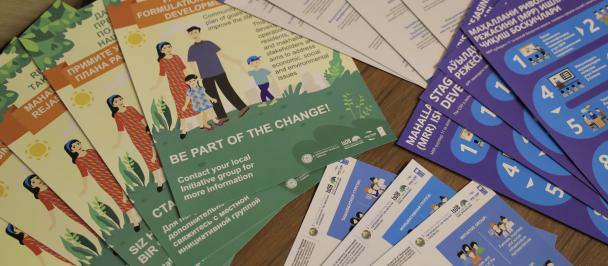
The Government of Uzbekistan with support of UNDP has developed and published the first SDG Bond Allocation and Impact report that provides information on how the proceeds from the bond issuance are helping to achieve Uzbekistan’s development priorities and highlights its commitment to achieve the Sustainable Development Goals (SDGs).
In July 2021, Uzbekistan has become the first country in the region and the second in the world to issue a Sovereign SDG Bonds worth of $US 235 million (nominated in Uzbek soums), with a 14% coupon rate, for a period of three years. The Bond facilitated the transfer of resources from global investors to public SDG-oriented projects in seven areas: Education (SDG 4), Water Management (SDG 6), Health (SDG 3), Green Transportation (SDG 11), Pollution Control (SDG 11), Management of Natural Resources (SDG 15), and Green Energy (SDG 7). The issuance of the SDG Bond attracted interest of about 50 international investors from the United States, Great Britain, Germany, Luxembourg, Switzerland, Denmark, Singapore, and the United Arab Emirates.
As Matilda Dimovska, UNDP Resident Representative noted, “This report is of a high importance as it demonstrates the actual change the Government was able to bring into the lives of the people with the funds attracted by the SDG bond”.
During the recent years UNDP has been supporting the Government of Uzbekistan to strengthen the overall financing framework for development, to better link the public finance to SDGs, to embed principles of transparency and participation as well as to harness the country’s growing private financial flows, both domestic and international and innovate with new financing instruments to help meet the growing development needs.

As a part of this work UNDP provided technical support and expertise in developing the SDG Bond Framework - to align the use of bond proceeds to specific metrics and the SDGs. The uniqueness of SDG bonds was not only demonstrated in the governance of the use of bond proceeds, but also in the establishment of a comprehensive monitoring and reporting system for projects which were supported.
A team of international experts supported the national institutions to a) build knowledge about SDG bonds, b) how to embed SDG impact standards in the project related processes – starting from application, evaluation, monitoring, data collection to reporting. The broader UN team contributed with a clear set of key performance indicators for each project or programme, so that the projects indeed have the intended impact, and can be accurately reported. To ensure transparency and promote the impact of this initiative, a monitoring press tour is planned to be held to the locations indicated in the report. In addition, an institution strengthening and trainings for line ministries was provided to ensure that the monitoring and reporting system functions.
Uzbekistan’s first SDG bond issuance is a significant step towards mobilisation of new financial resources to bridge the financing gaps for meeting Uzbekistan’s development objectives and build its resilience, sustainability, and prosperity. It will ensure continuity of state programmes working towards achieving the SDGs, while ensuring Uzbekistan achieves the Agenda 2030 vision on time and on schedule.
“UNDP stands ready to continue supporting the Government’s efforts to shift the public and private finance towards development and look for new forms of finance and financing instruments to meet the development needs and SDGs. We stand ready to accompany the Government in further issuance of SDG-aligned, thematic bonds or introduction of Islamic finance instruments” adds Matilda Dimovska, UNDP Resident Representative.

This initiative is realized within the framework of the UN Joint Programme on “Establishment of Integrated National Financing Framework for Sustainable Development in Uzbekistan (INFF)”, led by UNDP alongside the United Nations Children's Emergency Fund (UNICEF), the World Health Organization (WHO) and the UN Office on Drugs and Crime (UNODC). It aims to facilitate the establishment of an Integrated National Financing Framework (INFF) in the country to maximize the development impact of ongoing reforms. The Joint Programme is funded by the UN Joint SDG Fund with contributions from the European Union and governments of: Denmark, Germany, Ireland, Luxembourg, Monaco, Netherlands, Norway, Portugal, Spain, Sweden, and Switzerland.

 Locations
Locations


